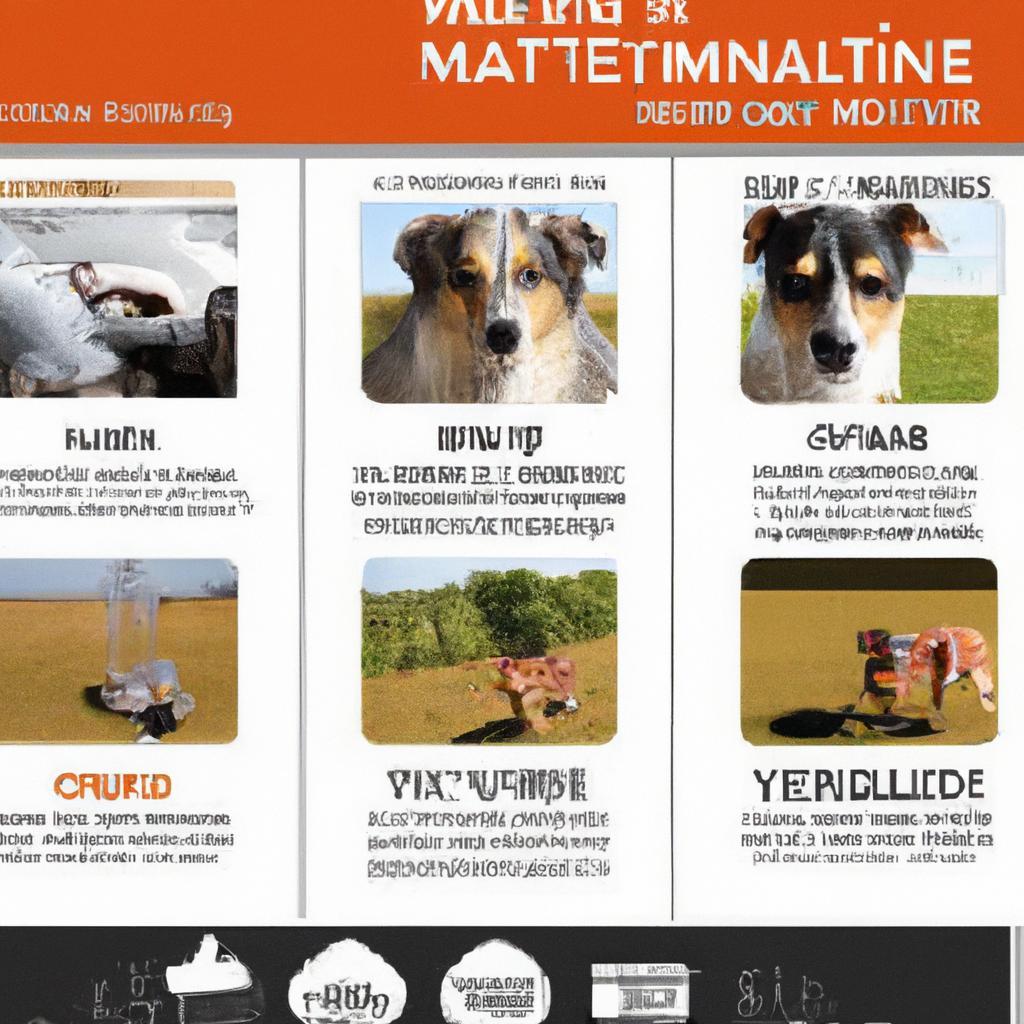Max, a spirited Golden Retriever, thrived on his daily kibble, bounding through parks with energy that turned heads. But one day, his owner, Sarah, decided to experiment with fresh ingredients. She introduced lean meats and vibrant vegetables, and soon, Max’s coat gleamed, and his vitality soared. While kibble offers convenience, a varied diet can enhance health and happiness. Dogs, like Max, deserve more than just kibble; they flourish with a balanced, nutritious diet that fuels their adventures. Consider enriching your dog’s meals today!
Contents
- The Nutritional Benefits of Kibble for Dogs
- Understanding the Limitations of a Kibble-Only Diet
- Exploring Alternative Diets for Optimal Canine Health
- Making Informed Choices: Balancing Kibble with Fresh Foods
- Q&A
The Nutritional Benefits of Kibble for Dogs
When considering the dietary needs of our canine companions, kibble stands out as a popular choice among pet owners. One of the primary advantages of kibble is its **balanced nutritional profile**. Most commercial kibble brands are formulated to meet the specific dietary requirements of dogs, ensuring they receive essential nutrients such as proteins, fats, carbohydrates, vitamins, and minerals. This balance is crucial for maintaining overall health, supporting growth, and promoting a strong immune system.
Another significant benefit of kibble is its **convenience and shelf stability**. Unlike raw or homemade diets, kibble can be stored easily without the need for refrigeration, making it a practical option for busy pet owners. Additionally, the long shelf life of kibble means that you can buy in bulk without worrying about spoilage. This ease of use allows for consistent feeding schedules, which is vital for a dog’s digestive health and routine.
Kibble also contributes to **dental health**. The crunchy texture of kibble can help reduce plaque and tartar buildup on your dog’s teeth, promoting better oral hygiene. Regular chewing of kibble can stimulate the gums and help maintain fresh breath, which is an often-overlooked aspect of a dog’s overall well-being. While kibble should not replace regular dental care, it can be a beneficial addition to your dog’s oral health routine.
Lastly, many kibble formulations are designed to cater to specific life stages, sizes, and health conditions. This means that whether you have a puppy, an adult dog, or a senior dog, there is likely a kibble option tailored to their unique needs. Specialized formulas can address issues such as weight management, joint health, and skin sensitivities, ensuring that your dog receives the appropriate nutrition throughout their life. By choosing the right kibble, you can support your dog’s health and longevity effectively.
Understanding the Limitations of a Kibble-Only Diet
While kibble is a convenient and popular choice for many dog owners, it’s essential to recognize that a kibble-only diet may not provide all the necessary nutrients for optimal canine health. **Commercial kibble** often relies on a limited range of ingredients, which can lead to nutritional deficiencies over time. Dogs, like humans, require a variety of vitamins, minerals, and other nutrients that may not be adequately represented in a single type of food.
Moreover, the **processing methods** used to create kibble can strip away some of the natural nutrients found in whole foods. High temperatures and extrusion processes can diminish the quality of proteins and fats, making them less bioavailable to your dog. This means that even though a kibble may claim to be “complete and balanced,” it might not deliver the same health benefits as fresh, whole foods that are rich in essential nutrients.
Another concern is the **palatability** of kibble. Many dogs can become bored with a monotonous diet, leading to decreased appetite and potential weight loss. A lack of variety can also affect their overall satisfaction and enjoyment of meals. Incorporating fresh ingredients or alternative food sources can enhance flavor and texture, making mealtime more appealing and encouraging better eating habits.
Lastly, some dogs may have **specific dietary needs** that a kibble-only diet cannot meet. For instance, dogs with allergies or sensitivities may require specialized diets that include fresh proteins and vegetables to avoid adverse reactions. Additionally, certain life stages, such as puppyhood or senior years, may necessitate tailored nutrition that kibble alone cannot provide. Understanding these limitations is crucial for ensuring your dog receives a balanced and fulfilling diet.
Exploring Alternative Diets for Optimal Canine Health
When considering the best diet for our canine companions, it’s essential to explore options beyond traditional kibble. Many pet owners are discovering the benefits of alternative diets that can cater to their dog’s unique health needs. These alternatives can include raw diets, home-cooked meals, and even specialized commercial options that prioritize whole ingredients. By diversifying your dog’s diet, you may enhance their overall well-being and vitality.
One of the most popular alternatives is the **raw food diet**, which emphasizes feeding dogs uncooked meats, bones, fruits, and vegetables. Proponents argue that this diet closely resembles what dogs would eat in the wild, potentially leading to improved digestion, healthier skin, and a shinier coat. Additionally, raw diets can help maintain a healthy weight and reduce the risk of certain health issues, such as allergies and dental problems. However, it’s crucial to ensure that the diet is balanced and meets all nutritional requirements.
Another option is **home-cooked meals**, which allow pet owners to have complete control over the ingredients. This approach can be particularly beneficial for dogs with food sensitivities or allergies, as it enables owners to avoid specific allergens. When preparing home-cooked meals, it’s vital to consult with a veterinarian or a pet nutritionist to create a balanced diet that includes the necessary proteins, carbohydrates, fats, vitamins, and minerals. This personalized approach can lead to noticeable improvements in your dog’s energy levels and overall health.
Lastly, consider **specialized commercial diets** that focus on high-quality, natural ingredients without fillers or artificial additives. Many brands now offer grain-free, limited-ingredient, or high-protein formulas designed to cater to specific health concerns, such as weight management or joint support. By choosing these premium options, you can provide your dog with a diet that not only meets their nutritional needs but also supports their long-term health. Ultimately, exploring these alternatives can lead to a happier, healthier life for your furry friend.
Making Informed Choices: Balancing Kibble with Fresh Foods
When considering your dog’s diet, it’s essential to recognize that kibble, while convenient and nutritionally balanced, is not the only option available. Many pet owners are now exploring the benefits of incorporating fresh foods into their dog’s meals. This approach can enhance the overall nutritional profile of their diet, providing a variety of vitamins, minerals, and antioxidants that kibble alone may not offer. By balancing kibble with fresh foods, you can create a more holistic diet that caters to your dog’s specific needs.
Fresh foods can include a range of options, such as:
- Fruits: Apples, blueberries, and bananas can provide essential vitamins and fiber.
- Vegetables: Carrots, spinach, and sweet potatoes are excellent sources of nutrients.
- Proteins: Cooked chicken, turkey, or fish can enhance protein intake and flavor.
Incorporating these fresh ingredients not only adds variety to your dog’s meals but also promotes better digestion and overall health. Many dogs thrive on a diet that includes both kibble and fresh foods, as it can help prevent food boredom and encourage a more enthusiastic eating experience. Additionally, fresh foods can support hydration, especially when incorporating water-rich fruits and vegetables, which is vital for your dog’s well-being.
However, it’s crucial to approach this dietary shift thoughtfully. Always consult with your veterinarian before making significant changes to your dog’s diet to ensure that the new food combinations meet their specific health requirements. By making informed choices and balancing kibble with fresh foods, you can provide your dog with a delicious and nutritious diet that supports their long-term health and happiness.
Q&A
-
Is kibble the only suitable food for dogs?
No, kibble is not the only suitable food for dogs. While it offers convenience and balanced nutrition, dogs can also thrive on a variety of diets, including raw, homemade, or wet food. It’s essential to choose a diet that meets your dog’s specific nutritional needs.
-
Can dogs eat kibble exclusively?
Feeding dogs exclusively kibble can be adequate for many, but it’s crucial to ensure that the kibble is high-quality and meets AAFCO standards. However, incorporating other food types can enhance their diet and provide additional nutrients.
-
Are there any downsides to feeding dogs only kibble?
Yes, some downsides include potential nutrient deficiencies if the kibble is not well-formulated, and the lack of variety can lead to boredom in your dog’s diet. Additionally, some dogs may prefer the taste and texture of fresh or wet food.
-
What should I consider when choosing a diet for my dog?
When choosing a diet, consider your dog’s age, size, breed, activity level, and any health issues. Consulting with a veterinarian can help you determine the best dietary approach, whether it includes kibble or other food types.
while kibble offers convenience and balanced nutrition, it’s essential to consider your dog’s unique needs. A varied diet, including fresh foods, can enhance their health and happiness. Consult your vet to find the best feeding strategy for your furry friend.




